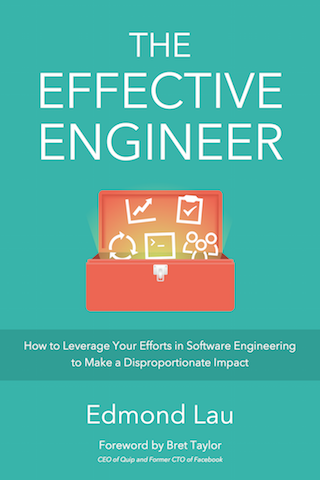What Makes an Engineer Successful Here?

This was first published to my weekly Q&A mailing list. Every week, I pick a different reader’s question to answer as honestly as I can.
When you just join a company, what are the things you can do in the first month or two to accelerate your learning and growth? And to propel you into a leadership role?
Whenever you’re starting a new role, it’s easy to feel overwhelmed. You’re bombarded by an influx of new knowledge. You’re worried about ramping up as quickly as possible. You’re feeling anxious about proving yourself. It’s tempting to just put your head down and power through, believing that it’s the most direct path to success.
Take a deep breath.
One of the most valuable things you can do as you start your new role is to slow down, introduce yourself to the people around you, and ask them, “What makes an engineer successful here?”
The one simple question turns out to be a powerful hack.
Listen for what people value
The best engineers will share common best practices – which I’ve researched and documented over several years in my book – but the particular set of tradeoffs valued by each team will differ. And because this question may never have been explicitly discussed before, the answers may even vary from person to person on the same team!
Listen carefully for what people value when you ask them this question. The answers you get back will paint a picture of what qualities people most respect from the experienced engineers on the team. You’ll also get a better sense of what type of engineering culture the team has built over time.
- Does the team hold a value of “move fast and break things?” Or is it more like “move fast with stable infrastructure?”
- Does the team value forging ahead and getting things done? Or do they value being more thoughtful and deliberate in design choices?
- Does the team care about making long-term investments? Or is it more important right now to experiment and learn quickly?
- Are different parts of the codebase owned by particular people or teams? Or is the code collectively shared, with everyone expected to fix problems as they encounter it?
These values aren’t always obvious. Normally, new engineering hires take months or even years to gradually build a mental model of what a successful engineer does on the team, through the conversations they have and stories they hear from other people.
With this one question, you’re looking to shortcut that entire process by leveraging everyone else’s learnings. You’re looking to clear up any assumptions you may have carried over from previous engineering experiences that don’t match with your current team.
If you can quickly build a mental model of what makes engineers successful, you end up with a map of where you should be investing your time. You’ll learn what people respect from the technical, product, and management leaders at the company. And every subsequent interaction, decision, and conversation can then be viewed through the lens of those values, accelerating your learning and your path to success.
Help new engineers by explicitly articulating your team’s values
If you’re someone who’s been on the team for a while, you can set new hires up for success by making these values more explicit — essentially answering the one key question before new hires even ask.
Recently at Quip, we did precisely that. We organized a team discussion on the topic of “What should a new engineer know or do here to succeed?” Those of us who have worked at Quip for a long time have internalized various mindsets about how we thought about engineering. And if we could articulate key ideas that we already knew to be true, it would allow new engineers to more quickly converge onto the tradeoffs that more experienced engineers would make.
From our discussion, we distilled a small set of non-obvious but actionable principles that we wanted new engineers to more quickly absorb. For us, these included:
- We take a long-term view of the team and the company.
- We value work-life balance and encourage a 40-hour work week.
- We collectively own the code base and the documentation.
- We trust that we all take full responsibility for what we do or don’t do.
- We encourage asking questions.
- We move fast and don’t break certain things (like security and privacy).
We illustrated each principle with concrete examples and included the principles in the conversation topics that mentors have with new engineering hires.
The principles you articulate for your own team will of course differ. But the outcome will be similar: you’ll give newer engineers on the team faster access to the principles and values that make your team great.
Have a question? Follow the weekly Q&A, and ask the hard questions you’ve always been wondering about.

“A comprehensive tour of our industry's collective wisdom written with clarity.”
— Jack Heart, Engineering Manager at Asana
“Edmond managed to distill his decade of engineering experience into crystal-clear best practices.”
— Daniel Peng, Senior Staff Engineer at Google

“A comprehensive tour of our industry's collective wisdom written with clarity.”
— Jack Heart, Engineering Manager at Asana
“Edmond managed to distill his decade of engineering experience into crystal-clear best practices.”
— Daniel Peng, Senior Staff Engineer at Google


















Leave a Comment